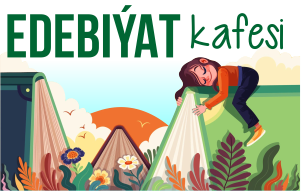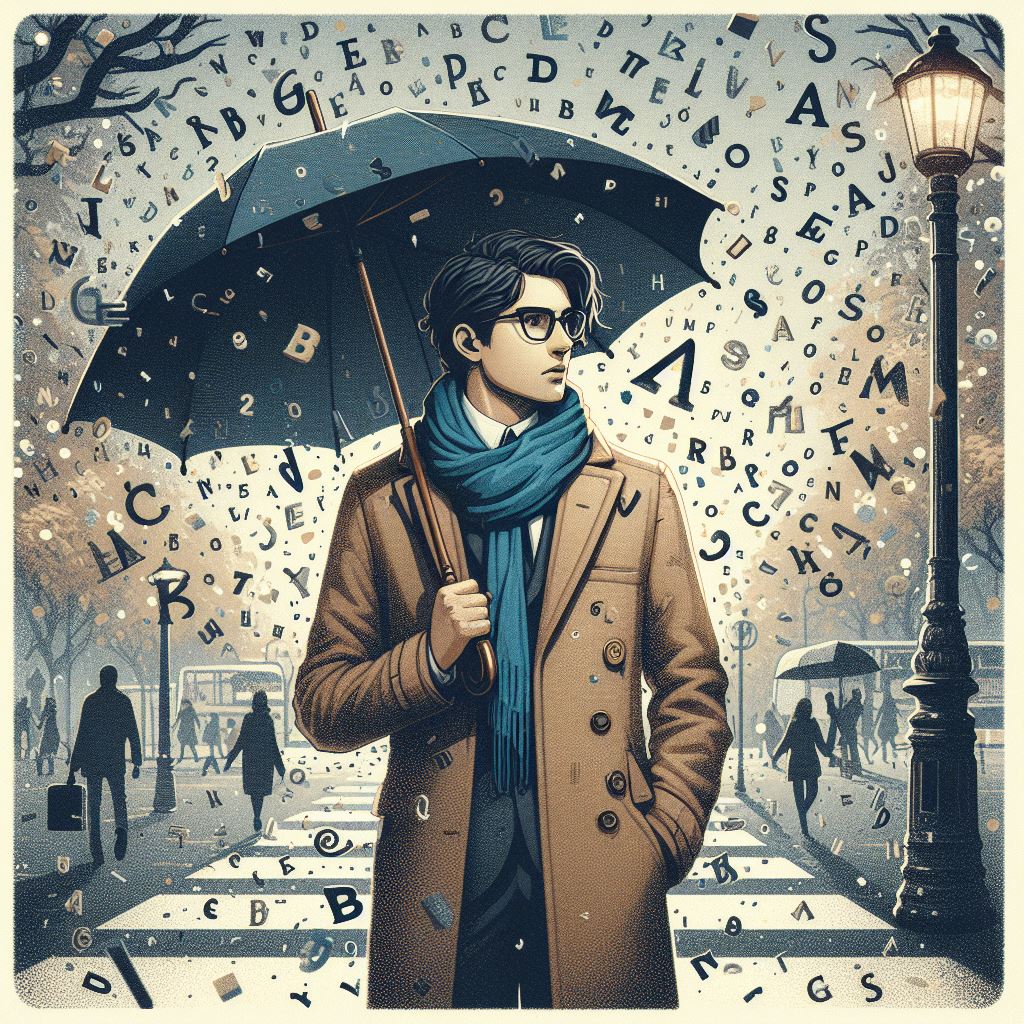03:22 Analysis | |
| Analysis of the image of the hero of F. M. Dostoevsky's novel "Crime and Punishment" by Raskolnikov based on Thomas Hobbes' book "Leviathan" (the answer to the question "Do I have the right?") The image of the main character is the reason for Raskolnikov’s judgments regarding the right and wrong. These two parallel thoughts do not give him peace of mind, thereby gradually absorbing his entire consciousness. We want to analyze Raskolnikov's image from the point of view of law ("May I?) and it is not right ("or is it forbidden?") according to the book of the English philosopher Thomas Hobbes "Leviathan", it is known that this book is the source of many modern laws of the old world, it also became the basis of many textbooks on jurisprudence. To begin with, we have to find out the reason for the need to commit crimes (we deliberately do not use the term pushing circumstances to commit a crime, because we are sure that pushing circumstances are the first signs of coercion. The image of Raskolnikov contributes to someone who could not resist that pushing and every moment more and more embracing force, and therefore to the image of a person who was forced to commit a crime. Speaking about the reasons for his "deed", we can conclude them all in one direction, namely, in the Poverty of the protagonist. Poverty manifests itself in different ways in the novel. Poverty – hopelessness Poverty is a weakness Poverty – begging Poverty – submission The association of all these aspects helps to look at the visible and inner world of Raskolnikov. In a word, they generate melancholy in the soul of the hero. "Mental depression makes a person prone to unreasonable fear, which is madness, usually called melancholy," T. Hobbes notes. This melancholy is rich in its different perceptions. In his book "Evil Wisdom", F. Nietzsche wrote that "Long and great sufferings bring up a tyrant in a person", Namely, continuous and endless torments change a person's mind. Thus, the timid by nature dares to do something that even the brave would not go. Due to his suffering, spiritual melancholy, Timid Raskolnikov turns into a brave Raskolnikov. "What business do I want to encroach on and at the same time what trifles I'm afraid of," he muses to himself. It becomes interesting how Raskolnikov himself treats his poverty. From the point of view, poverty is hopelessness, he wants to find some way out, poverty is weakness, he does not want to be powerless, poverty is begging – he does not even want to ask his friend Razumukhin for help, because he is not sure that such help will suit him, from the point of view, poverty is submission, he considers himself completely incapable of obeying. Raskolnikov's image at that time resembles an earthquake in the depths of the ocean, which is about to come out on the outside. From the above, one can feel what word Raskolnikov's attitude to his poverty can be called. This feeling is hatred in all its manifestations. Consequently, Raskolnikov is not only dissatisfied with his poverty, he hates it with all his soul. The following words of Marmeladov sound prophetic: "Poverty is no crime, it is the truth. But misery, my dear sir, misery is a vice. In poverty, you still retain your nobility of innate feelings, but in misery, no one ever" (p.) Vol. Hobbes sees in hatred, in lust, in ambition, in greed, the cause of crimes (p.231) "... for what a person hates causes him continuous and inevitable anxiety, by virtue of which a person must either arm himself with long-suffering, or free himself from the power of this anxiety by eliminating its cause" - he adds, thus, emphasizing that the latter often leads to a violation of the law. So, we found out that Raskolnikov's image operates within the framework of poverty and his attitude to his position is extremely negative. Thus, it is possible to create the following geometric figure, where poverty is compared to the "committed act" Poverty as the core of feelings generates all the others Poverty In geometry, this figure is called a circle. In literature, we will conditionally call it Raskolnikov's poverty Square, in which he is constantly located. 1) – hatred 2) intention 3) right or wrong 4) conscience. In the center, let's assume, is the image of Raskolnikov. Then the following follows from this circle: 1. He hates poverty, and this feeling generates the intention to commit a crime 2. The intention often leads him to think about the right and not the right, thereby turning into a conscience If the primary source of his intention to commit crimes is poverty, then the driving force of his views on law and rights ("Am I a trembling creature, or do I have the right?") there is hatred. T. Hobbes argues that the causes of crimes are false principles regarding right or not right (p.229) It is worth noting that any act, both by laws and ethics norms, is connected. Ethics is considered to be an unwritten law. Therefore, the concept of committing a crime must be analyzed with the categories of ethics, sin and repentance. Moreover, the philosopher himself does not see a big difference between them. In this case, we are faced with the question of the nature of sin. "Sin is not only a violation of the law, but also an expression of contempt for the legislator...sin can consist not only in committing an act or uttering words prohibited by law, or in not doing what the law commands, but also in intending to violate the law" (p. 225) Of course, he explains that there is a sin inherent in itself language – the language of a lawyer. And we are interested in the legal explanation of sin. From the definition, it can be concluded that sin is not only a criminal act committed, but the intention to commit it is also accepted as a crime. The intention to commit a crime is a constituent factor of crime, whereas the dream of committing a crime is a free feeling from punishment before the laws of the state. "... because he is amused by the imagination of what would give pleasure if it were real, there is a passion so characteristic of nature as a person" (see ibid.), he emphasizes. Many, especially the clergy, did not agree with the philosopher's conclusions. For example, even if one imagines that a person's intention is a more conscious feeling than an imaginary dream, then one should not forget that, precisely, an intention is born from a dream, in one way or another, they are the embodied form of a person's desires. The reason that T. Hobbes does not consider an imaginary dream a sin can be found in the nature of the dream itself. A dream is a passion, a passion is a passing feeling, therefore, a sin that has not taken effect should not be perceived as a crime unless its intention to be realized is proven. The philosopher believes in the pursuit of good in people. He thinks that as long as a person "dreams", that is, this dream has not yet been put into action, then he has the opportunity to take the right path. But, unfortunately, practice proves the opposite. And the image of Raskolnikov serves as an example of this. Raskolnikov intends to commit a crime. T. Hobbes identifies 3 types of reasons for the intention to commit a crime. We defined the first of them by the principle of "Everything is possible for autocrats". Because, in terms of content, such a principle corresponds to such a definition. This is the principle with which Raskolnikov goes to kill an old woman- usurer. According to Hobbes, if the person who broke the law is stronger than him, then they do not obey the law. He hints that the strong have their own laws, while the weak live by the law. This principle is the first of the above intentions. (p.229) When Raskolnikov asks himself: "Am I a trembling creature or do I have the right?" he acts on this principle. An interesting fact is that this principle was popular among the Greco-Roman authors. So one of them Anacharsis replied to Solon: "... both the web and the laws, when the weak and the poor come across, they will be held, and the strong and the rich will escape" The views of the protagonist with regard to right and wrong are closely related to the concepts of good and evil. His conscience as a source of morality governs all his actions. Conscience according to T. Hobbes – the natural right (right of nature) – usually called by writers jus naturale, is the freedom of every person to use his own powers at his discretion to preserve his own nature, i.e. his own life, and consequently, the freedom to do everything that, according to his judgment, is the most suitable for him" Raskolnikov also acts according to his conscience. He begins to realize that he will not rest until he kills the old moneylender woman. This is how the first sparks of protest appear, as a result of which our hero fevers into agony. Yes, Raskolnikov's protest is understandable, it has its roots in the center of morality, i.e. in the conscience of the hero. In this case, if "something" is able to stop him from what he has planned, then this "something" should be a question to his conscience (p. 58) "I just killed a louse" - he confirms the decision of his conscience Many times we come across monologues about whether his decision to commit a crime was fair. For a person who is always in a state of protest, the voice of his conscience sounds everywhere. So, our concept of poverty-hatred acquires another replenishment in the form of a hero's protest. The concept of poverty-hatred-protest, unlike poverty-hatred-submission, cannot be without consequences. Especially for those who live according to their conscience. Hobbes introduces a definition, calling such a state a "war of all against all" and explains that nothing can be unfair in such a war, that the concepts of justice and injustice are essential to those who live in society, he also declares that a person with a natural right (i.e., with a conscience) has the right to everything (p.97) Raskolnikov corresponds to all points of this definition. 1) He isolates himself from the environment, he is lonely 2) He has a natural right (conscience) Raskolnikov, indeed, falls into a state of war, the writer himself repeatedly mentions this. He really loses his relatives – his mother, sister, and due to the fact that he has beliefs about the existence of a natural right, he turns into a person who, in his opinion, can decide the fate. T. Hobbes is unshakable in relation to his decision regarding the laws. He considers it permissible to act according to conscience, only if the laws are not established in advance. "Because the law is the conscience of the state," he defends. And in the society where Raskolnikov lives, laws are drawn up, rights are established. Only the person who mentally got into another space called "war of all against all" can act according to his conscience. But sooner or later, he will have to get into real time, which continues in parallel. So Raskolnikov is disappointed in his expectations and makes mistakes in his calculations, finding out for himself that he is unable to change anything. T. Hobbes puts more emphasis on the materialistic side of the crime. He does not even see a significant difference between sin and crime. "A crime is a sin consisting in doing by deed and word what is forbidden by the law, or in not doing what he commands" (p.226) – Just as he introduces sin, the ethical category that it is, into the composition, we have two parallel lines of Raskolnikov's "deeds". 1) Crime and punishment 2) Sin and repentance As for the first one, he committed a murder, which is nothing but a pre-planned crime. The fact that a premeditated crime is much more serious than a crime committed on the basis of false principles is confirmed by T. Hobbes himself (p.236), But another one immediately manifests itself the side of the crime, namely, the gradual realization that he was wrong. As a result, the first phrase is opposed to the second of the above definition. In this regard, our parallel line of sin and repentance arises. Having found out for himself that his beliefs were false, illusory, fragile, Raskolnikov repents. Thus, parallel lines become proportional to each other, which is a pattern Crime-Punishment Repentance-Sin The novel by F. M. Dostoevsky is based on a parable taken from the "New Testament" about the resurrection of Lazarus. This plot entirely serves as the proto plot of the novel, and Lazarus himself is considered to be the prototype of Raskolnikov. According to this parable, Lazarus, who is ill, dies. The plot about a person's illness and death, which is often found in religious texts, is connected with the legends about the fall of the first man, i.e. Adam. Religious texts say that Adam is the first person who committed a sin by disobeying the Lord, and thus he acquired death as a punishment for his sin. If he had not disobeyed God, then he would not have been expelled from paradise and would have been immortal. Because, in people's beliefs, paradise is a place of eternal peace and goodness, where there is no death. Of course, in all texts, finding peace happens with the permission of the Lord. In the words of the great poet Makhtumkuli, "If the Almighty turns his gaze," a new human life will begin and only those whose Master is satisfied with this life will be honored. Like Lazarus, Raskolnikov also seeks God's blessing. Moreover, to get sick is a symbol of Raskolnikov's intention to commit a crime, and to die is the completed act of an intentional one, and in the end, to be reborn anew is a symbol of finding a new life, and the blessing of the Lord. T. Hobbes writes that "... sins can be absolved to a penitent either for free, or at the behest of the Lord..." We are all happy the thought that, in the end, Raskolnikov, having repented, finds peace. At the end of this article, it would not be superfluous to recall the intersecting intersections between, written from a materialistic point of view, "Leviathan", and written from an idealistic point of view, "Crime and Punishment" BAGUL ATAYEVA | |
|
| |
| Ähli teswirler: 0 | |





